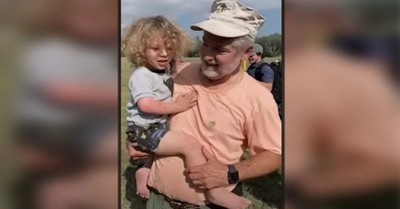
Trending Articles
Recent News
Neal McDonough Explains Why He's Making Movies That Point People to Something Greater Guns and Moses Actor Neal McDonough Says Biblical Love and Forgiveness Are Key to Healing a Divided World Tori Kelly Gives Glory to God in Joyful Pregnancy Announcement Dolly Parton Announces Music Hiatus as She Mourns Husband’s Death Research Reveals Reading Bible Weekly Lowers Anxiety and Boosts Hope New Claims of AI Interpreting Tongues Stir Debate among Believers Life Surge President Says ‘God Is on the Move’ in a Nation Hungry for Truth Baylor Backtracks, Returns LGBT Grant over Conflict with Christian Mission Wisconsin Music Festival Keeps Newsboys on Lineup Despite Allegations against Michael Tait
Trending Articles
Recent News
Neal McDonough Explains Why He's Making Movies That Point People to Something Greater Guns and Moses Actor Neal McDonough Says Biblical Love and Forgiveness Are Key to Healing a Divided World Tori Kelly Gives Glory to God in Joyful Pregnancy Announcement Dolly Parton Announces Music Hiatus as She Mourns Husband’s Death Research Reveals Reading Bible Weekly Lowers Anxiety and Boosts Hope New Claims of AI Interpreting Tongues Stir Debate among Believers Life Surge President Says ‘God Is on the Move’ in a Nation Hungry for Truth Baylor Backtracks, Returns LGBT Grant over Conflict with Christian Mission
Positive Stories
Celebrity
Video
Opinion
Church
Entertainment
Sports
Movies
Politics
Israel
Christian News Headlines - Breaking and Trending Religion News
Crosswalk Headlines - Christian news brought to you by a group of Christian writers and editors who are dedicated to creating a well-rounded look at what’s happening across the globe from a Christian worldview. Our vision is to inform and inspire productive discussion about the current events and online trends that shape our lives, our churches and our world.Crosswalk Headlines includes blog posts about current events and Christian media, breaking news, feature articles, and guest commentaries, many written by respected Christian thinkers.


































































